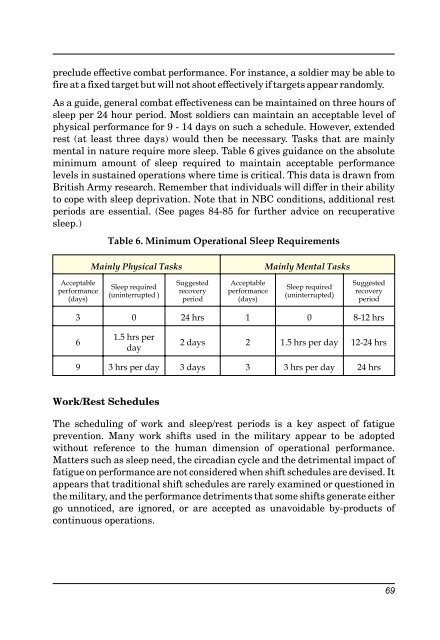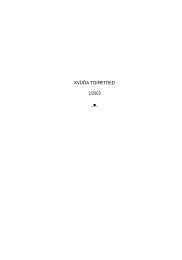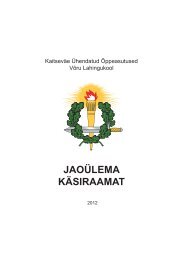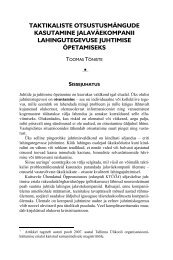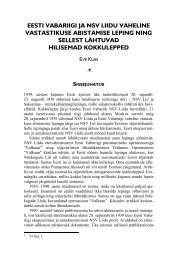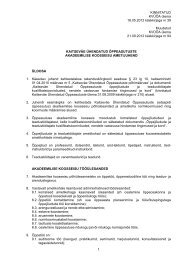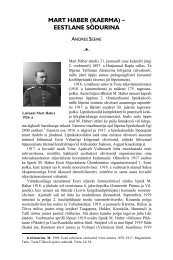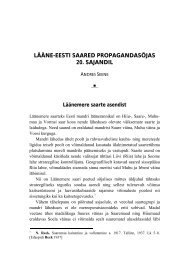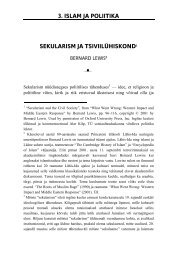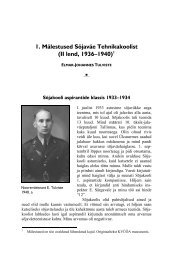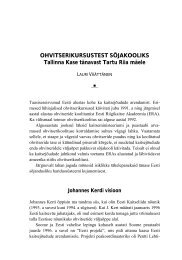Fatigue Management
Fatigue Management
Fatigue Management
You also want an ePaper? Increase the reach of your titles
YUMPU automatically turns print PDFs into web optimized ePapers that Google loves.
preclude effective combat performance. For instance, a soldier may be able to<br />
fire at a fixed target but will not shoot effectively if targets appear randomly.<br />
As a guide, general combat effectiveness can be maintained on three hours of<br />
sleep per 24 hour period. Most soldiers can maintain an acceptable level of<br />
physical performance for 9 - 14 days on such a schedule. However, extended<br />
rest (at least three days) would then be necessary. Tasks that are mainly<br />
mental in nature require more sleep. Table 6 gives guidance on the absolute<br />
minimum amount of sleep required to maintain acceptable performance<br />
levels in sustained operations where time is critical. This data is drawn from<br />
British Army research. Remember that individuals will differ in their ability<br />
to cope with sleep deprivation. Note that in NBC conditions, additional rest<br />
periods are essential. (See pages 84-85 for further advice on recuperative<br />
sleep.)<br />
Table 6. Minimum Operational Sleep Requirements<br />
Mainly Physical Tasks<br />
Mainly Mental Tasks<br />
Acceptable<br />
performance<br />
(days)<br />
Sleep required<br />
(uninterrupted )<br />
Suggested<br />
recovery<br />
period<br />
Acceptable<br />
performance<br />
(days)<br />
Sleep required<br />
(uninterrupted)<br />
Suggested<br />
recovery<br />
period<br />
3 0 24 hrs 1 0 8-12 hrs<br />
6<br />
1.5 hrs per<br />
day<br />
2 days 2 1.5 hrs per day 12-24 hrs<br />
9 3 hrs per day 3 days 3 3 hrs per day 24 hrs<br />
Work/Rest Schedules<br />
The scheduling of work and sleep/rest periods is a key aspect of fatigue<br />
prevention. Many work shifts used in the military appear to be adopted<br />
without reference to the human dimension of operational performance.<br />
Matters such as sleep need, the circadian cycle and the detrimental impact of<br />
fatigue on performance are not considered when shift schedules are devised. It<br />
appears that traditional shift schedules are rarely examined or questioned in<br />
the military, and the performance detriments that some shifts generate either<br />
go unnoticed, are ignored, or are accepted as unavoidable by-products of<br />
continuous operations.<br />
69


